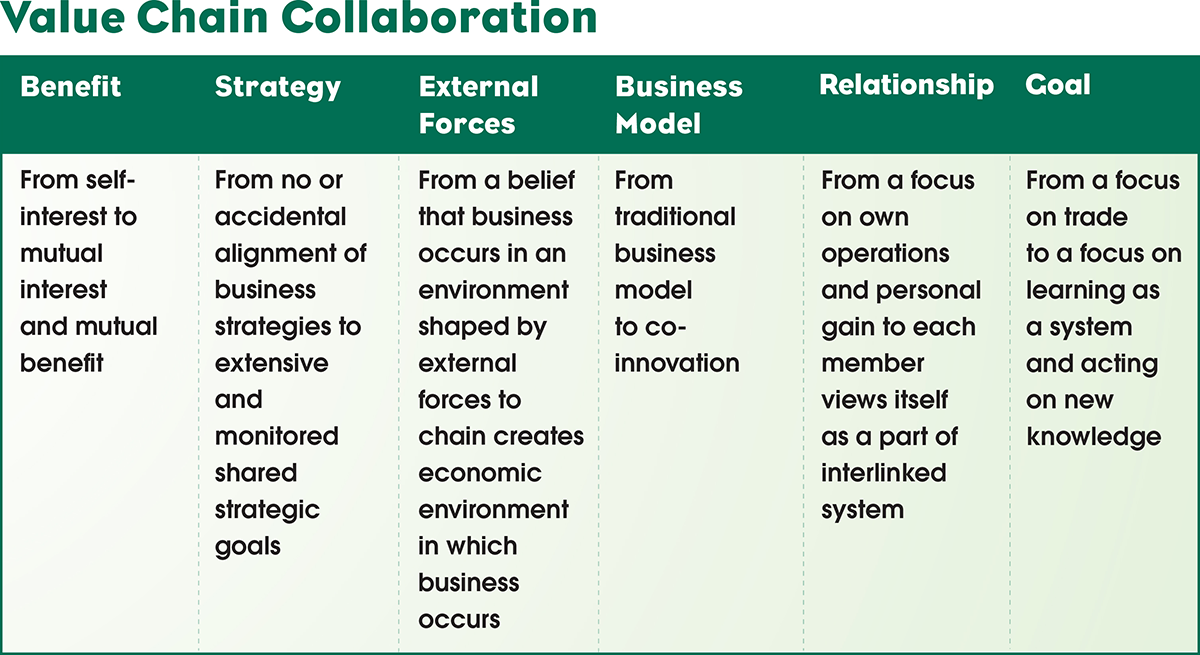With the prospect of 9 billion people co-existing on our planet by 2050, progressive businesses recognize the need to reduce their impacts, maintain access to scarce resources, meet changing customer expectations and protect their brands. Companies that fail to do so will ultimately lose their social license to operate, disappoint customer and stakeholder expectations and miss out on an opportunity to gain competitive advantage.
An emerging business imperative is that companies reduce not only their direct operational footprint but also the social and environmental impacts up and downstream of their operations, across regions and sectors. To become “sustainable” it is essential that businesses see themselves as part of a larger system. They must innovate along their value chains, engaging business partners and customers to improve the positive benefits along the product and service life cycle. This is one of the top qualities transformational companies adopt to secure their future and improve society’s prospects, as described in my research into the Qualities of a Transformational Company.
Profound and radical change needed
The successful business of the future will move from transactional to collaborative relationships along its value chain, as summarized below:

Adapted From: Characterizing the Determinants of Successful Value Chains, Value Chain Management Centre, 2013
Achieving a sustainable, collaborative value chain is no easy feat. Help is at hand.
Webinar: How to engage the value chain in sustainability
In this one-hour webinar on Tuesday, December 1, 2:00 pm ET, I will describe this essential CSR trend. Frances Edmonds, HP Canada’s Director of Environmental Programs, will share how the company is accelerating its journey toward more sustainable computing and printing through value chain innovation.
She will describe how HP assesses environmental impacts along its value chain and then engages its suppliers and customers to reduce their impacts, driving value for HP and its business partners while improving environmental conditions. Frances will provide practical advice for how organizations can get started on this mission critical path. Her insights are not to be missed.
You and your strategy, operations, procurement, production, manufacturing, energy/waste management and customer relations teams are encouraged to join us to learn:
- Why and how leading companies assess and improve the social and environmental impacts of their value chains (suppliers and customers).
- How to get started on value chain activation.
Gather your colleagues to listen in one room. Unable to make the event? Register anyway and you’ll receive a recording a few business days after the webinar. More details at this link. A $50 discount is available by emailing publications@conferenceboard.ca with the code ECCORO.


